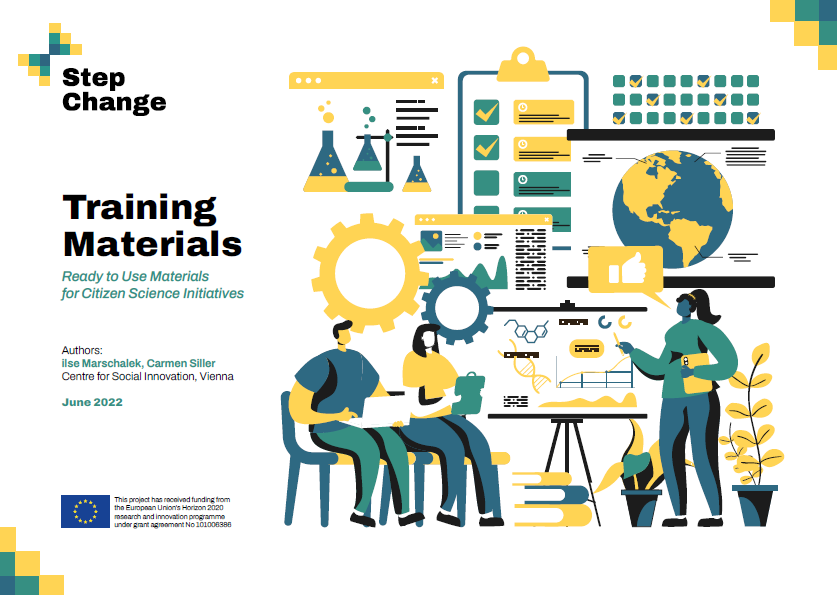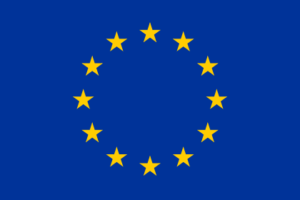Developed by our team from the Centre for Social Innovation (ZSI), in charge of mutual learning and training activities, the document is a ready to use compilation of training materials dedicated to support citizen science initiatives.
This output of the Step Change project is addressed to those interested in setting up citizen science projects, and aims to:
- Present the materials developed and used by Step Change in its training activities
- Introduce and discuss some of the main challenges when it comes to setting up citizen science projects.
- Propose some useful strategies to tackle such challenges and a set of ready-to-use exercises.
Step Change is a project focusing on Citizen Science, funded under the H2020 programme of the European Commission. The project is implementing five Citizen Science Initiatives (CSIs) in the fields of health, energy, and the environment. The CSIs tackle the topics of wildlife conservation in Slovenia, non-alcoholic fatty liver disease in the UK, renewable energy communities in Germany, infectious disease outbreak preparedness in Italy, and off-grid renewable energy in rural Uganda. The goal of the project is to explore the potential of citizen science while formulating recommendations for better cementing this approach within research and innovation institutions.
To underpin the implementation of the CSIs, a set of support actions has been designed to facilitate trans-disciplinary work, including training and mutual learning activities in charge of our colleagues from ZSI. The training schemes have been tested in a series of workshops, which have taken place in an online setting between November 2021 and February 2022. The training sessions, tailored to the different needs of the CSIs, have been designed to introduce and test different engagement methods to be applied all along the implementation of the CSIs, to offer train-the-trainer materials to be used by the CSIs while dealing with their specific target groups and to support them in responsively and adaptively manage their teams throughout the project’s timeline. The workshops featured a combined methodology mixing up theoretical inputs and practical exercises with reflection sessions.
The document at hand contains a selection of the materials used during the training sessions. The first section of the document presents different options for opener sessions exercises to apply at the beginning of training sessions. In subsequent parts it includes links to a series of power point presentations introducing the main theoretical elements tackled during the sessions: basic understandings of participatory approaches; the concept of working with “personas”; motivations of citizen scientists; and communication about and within citizens science initiatives. It further contains an excerpt of the exercises tested during the workshops, namely: the do’s and don’t s in the citizen science process; the method of “personas”; awareness raising on stereotypes; communication assessment; and an exercise with “expert tables”. Some examples of energizer exercises are given and described, as well as options for feedback exercises at the end of training sessions. Last but not least, the document also includes a list of recommended further readings.
These open educational resources will also be made available to the community through the training section of the eu-citizen.science platform
To know more about the training formats developed by Step Change and the spirit under which they have been designed– read this interview with Carmen Siller, Project Manager at ZSI

